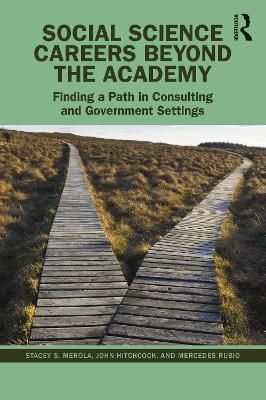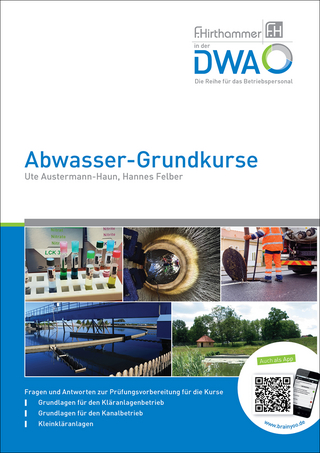
Social Science Careers Beyond the Academy
Routledge (Verlag)
978-1-032-43286-1 (ISBN)
Social Science Careers Beyond the Academy provides a “road-map” to a career outside of academia for students of the social sciences who want to transition to a corporate or government environment after they complete their studies.
It isn’t always easy to see how the skills you develop in academia will apply to corporate consultancy or research positions, or even to see clearly where these various career paths might lead and whether they might suit you. Are you a start-up person or do you think that a big, established organization will provide you with desirable opportunities? Would you prefer to work for a public or private firm, or perhaps for a government agency? Are you better at research or project management? How do you go about adapting your writing to the nonspecialist audience of colleagues in an organization?
This book is written by a team of authors who straddle the line that separates academia from consultancy work and have mentored countless students to make a successful transition to the working world, whether in academia or not. The authors identify and categorize various popular paths that are available to you; describe the types of organization, roles, and what they involve; and show how to map your own skills, personality, and preferences to the jobs you might aspire to obtain. This book is the ultimate guide to building your path to success after you conclude your studies.
Using an informal style, this book is ideal for social science students looking to make their next steps after academia by seeking positions in consulting and research firms, or with a government entity.
Stacey S. Merola, Ph.D., is a Principal Investigator at Guidehouse, Inc. where she is providing leadership on a portfolio of large, mixed-methods evaluations. Dr. Merola is a multiple award-winning evaluator with more than 25 years of social science research experience and over 20 years of experience in program evaluation, as both a manager and an analyst. Over the course of her career, Dr. Merola has worked with a diverse cross section of clientele representing government, corporations, and nonprofits to understand the effectiveness of their programs. She has worked at large consulting firms and small consulting firms, and owned her own successful small business for eight years. John H. Hitchcock, Ph.D. (University at Albany, State University of New York), is a Principal Research Scientist at Westat, where he conducts grant-funded and contract-based research for government agencies and philanthropies. He focuses on evaluating interventions in K–12 education and he writes about mixed methods research and other types of research designs. To date he co-authored more than 70 works that have been collectively cited more than 6,000 times and he presented at professional conferences more than 150 times. He worked as a tenured faculty member at two different universities. Mercedes Rubio, Ph.D., is Program Director in the Division of Training, Workforce Development, and Diversity, where she handles the National Research Mentoring Network (NRMN) of the NIH Common Fund Enhancing the Diversity of the NIH-funded Workforce Initiative, the Institutional Research and Academic Career Development Awards (IRACDA), the Bridges to the Baccalaureate, Innovative Programs to Enhance Research Training (IPERT), and the Research to Understand and Inform Interventions that Promote the Research Careers of Students in Biomedical and Behavioral Sciences portfolios. She also will serve in the role of program officer in the NIGMS Postdoctoral Research Associate (PRAT) Program. Before joining NIGMS, Rubio was chief of the Psychopathology Risk and Protective Factors Research Program at the National Institute of Mental Health and was assistant director of that Institute’s Individual Research Fellowship Program. Rubio earned a B.A. in sociology from California State University, Bakersfield, and a Ph.D. in medical sociology from the University of Michigan, Ann Arbor, where she also completed postdoctoral training in nursing in the area of HIV intervention and health disparities.
List of Figures and Tables
Acknowledgments
1. Can I Pick Your Brain?
2. What Types of Organizations Would Hire Me?
3. What Types of Jobs Would I Be Hired for and What Are the Typical Tasks?
4. What Skills Will I Need?
5. How Do I Get These Jobs?
6. What If I Want to Work for the Government?
7. What If I Decide I Want to Go (Back) Into Academics?
8. What If I Want to Have My Own Business?
9. What If I Can’t Decide and Want to Do Both?
10. Can You Give Me Any Other Help With My Existential Angst?
Index
| Erscheinungsdatum | 17.04.2023 |
|---|---|
| Zusatzinfo | 6 Tables, black and white; 4 Line drawings, black and white; 10 Halftones, black and white; 14 Illustrations, black and white |
| Verlagsort | London |
| Sprache | englisch |
| Maße | 156 x 234 mm |
| Gewicht | 200 g |
| Themenwelt | Sozialwissenschaften ► Pädagogik ► Berufspädagogik |
| Sozialwissenschaften ► Pädagogik ► Erwachsenenbildung | |
| Wirtschaft ► Volkswirtschaftslehre | |
| ISBN-10 | 1-032-43286-1 / 1032432861 |
| ISBN-13 | 978-1-032-43286-1 / 9781032432861 |
| Zustand | Neuware |
| Informationen gemäß Produktsicherheitsverordnung (GPSR) | |
| Haben Sie eine Frage zum Produkt? |
aus dem Bereich


